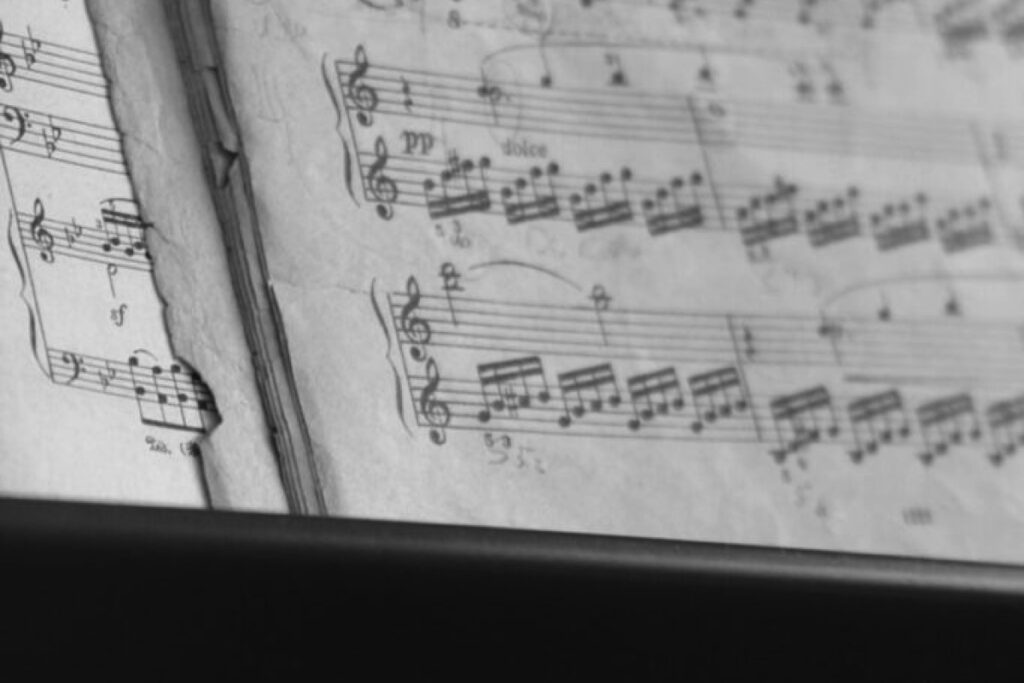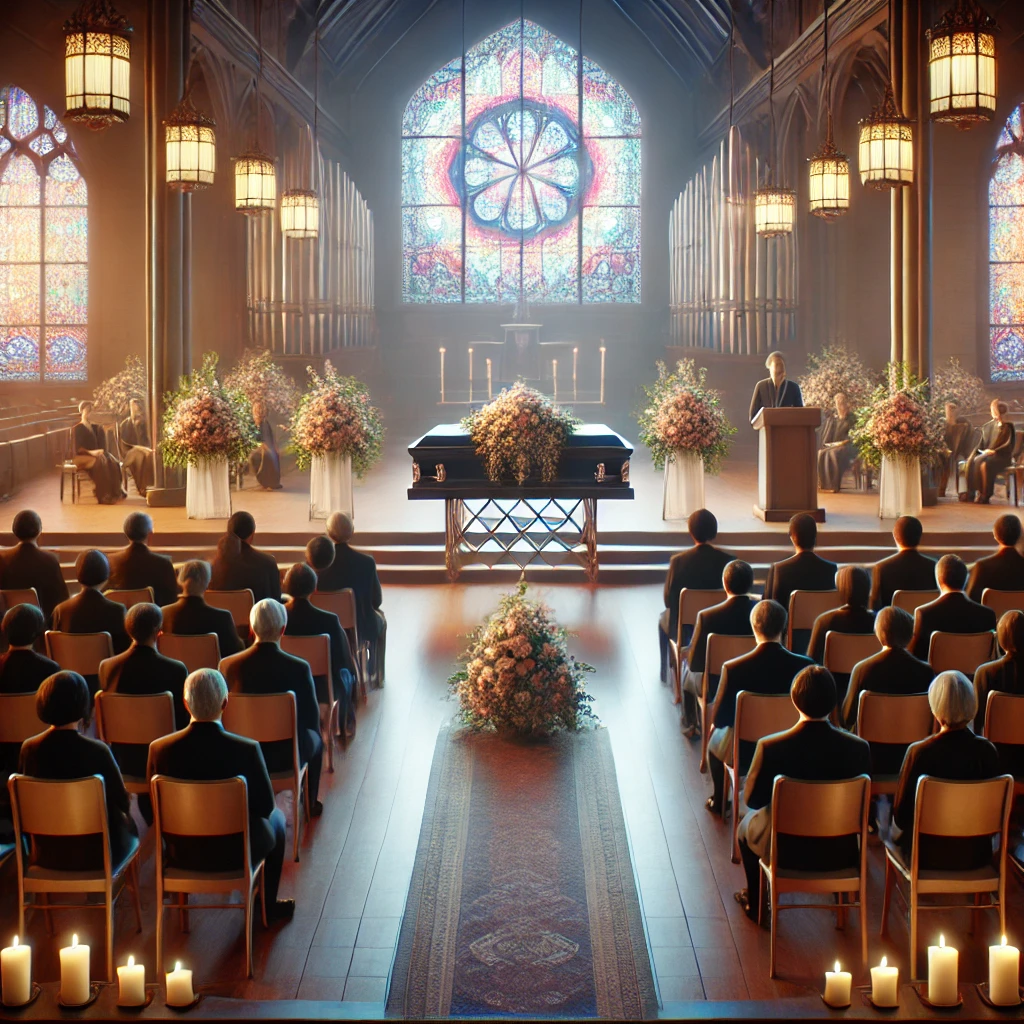Selecting music for a funeral or celebration of life is one of the most personal aspects of planning a meaningful service. Music has the power to evoke emotions, bring comfort, and celebrate the life of a loved one. Whether you’re organizing a traditional funeral or a more informal celebration of life, the right music can set the tone, reflect the deceased’s personality, and offer a space for reflection. Here’s a guide to help you choose the perfect music for the occasion.
Consider the Deceased Person’s Preferences
The first place to start is with the preferences of the deceased. If they had specific songs or artists they loved, incorporating these into the service can be a beautiful way to honor their memory.
- Favorite Songs or Artists: Think about songs that your loved one enjoyed listening to or that have special meaning for them. This could be a favorite pop song, a beloved classical piece, or even a track from their youth that held sentimental value.
- Religious or Spiritual Beliefs: If your loved one held religious beliefs, you may want to include spiritual music or hymns. Traditional options like “Amazing Grace” or “Ave Maria” are commonly used in Christian services, while other faiths may have their own sacred songs for mourning and remembrance.
- Cultural Traditions: Music plays a significant role in many cultural funeral rites. Consider including music that reflects your loved one’s cultural heritage. For example, bagpipes are often played at Scottish funerals, while some Asian cultures might prefer instrumental or meditative music.
Match the Tone and Mood of the Service
Different services call for different tones, and the music should align with the overall mood of the event. A funeral may call for more solemn music, while a celebration of life might incorporate upbeat or joyful tunes.
- Solemn vs. Uplifting: For a traditional funeral service, classical or instrumental music can provide a reflective atmosphere. However, for a celebration of life, you may want to include more lively and uplifting songs that celebrate the person’s life.
- Instrumental or Lyrical: Instrumental music can create a peaceful environment, while songs with meaningful lyrics can add emotional depth to the service. For example, a classical piece like Pachelbel’s “Canon in D” might bring calm, while a lyrical song like Eric Clapton’s “Tears in Heaven” can add a poignant, personal touch.
Balance Personal Choices with Universal Appeal
While it’s important to incorporate music that had special meaning for the deceased, it’s also wise to consider the audience. Some songs may resonate with family members and friends more than others.
- Personal Touches: Include songs that reflect the deceased’s personality and preferences. If they loved a particular artist or genre, it’s fitting to include that in the service.
- Popular Funeral Songs: Some songs have universal appeal and are often used in memorial services to bring comfort to all attendees. Popular choices include:
- “Wind Beneath My Wings” by Bette Midler
- “My Way” by Frank Sinatra
- “Time to Say Goodbye” by Andrea Bocelli
- “Over the Rainbow” by Israel Kamakawiwo’ole
Choose Music for Key Moments
Music can play an important role at various points throughout the service. Consider the following sections where music may enhance the overall atmosphere.
- Prelude and Processional: This is the music that plays as guests arrive and the service begins. It should be calming and set the tone for the event. Gentle instrumental pieces or soft classical music work well here.
- During the Service: You can use music to provide a break between readings or speeches, giving attendees time to reflect. A special song can also be played during a slideshow or photo montage to add emotional resonance.
- Recessional: The recessional is the final music played as the service concludes. It can be solemn or more uplifting, depending on how you want to end the service. Some choose peaceful, calming music, while others opt for a celebratory song that honors the person’s life.
Live vs. Recorded Music
Decide whether you’d like live music or prefer to use recorded tracks. Both options have their advantages, depending on the setting and your preferences.
- Live Music: Hiring musicians to perform live adds a personal touch. Vocalists, organists, pianists, or even a string quartet can elevate the emotional impact of the music. However, be mindful of logistics and costs, and ensure the music fits the venue’s acoustics.
- Recorded Music: Playing pre-recorded music provides more flexibility in terms of song selection. It allows you to incorporate original versions of favorite songs and can be easier to manage, especially in non-religious venues or outdoor settings. Test the sound system ahead of time to ensure the music plays smoothly.
Coordinate with Venue or Religious Guidelines
If you’re holding the service in a church or other religious venue, check to see if there are any restrictions or guidelines regarding the music. Some places of worship may require approval for the music selections, especially if the songs aren’t religious in nature.
- Ask the Venue: Ensure that the music you choose fits within the framework of the service. Some religious ceremonies may only permit sacred music, while others may be more lenient.
Involve Family and Friends
Choosing music can be an emotional task. Involving close family members or friends can bring additional meaning to your selections.
- Seek Input: Asking loved ones for their thoughts and suggestions can help you make decisions that honor the deceased’s memory while bringing comfort to others.
- Dedications: Consider including a section where specific songs are dedicated by attendees, offering them a way to feel more involved in the ceremony.
Funeral Songs For the Older Generation
See a choice of 50 songs for the older generation that would be suitable for a funeral. Click here
Funeral Songs for Specific People
- Click here for Funeral Songs for Mom. A selection of 50 songs by genre for a woman’s funeral.
- Click here for Modern Funeral Songs for Mom. A selection of more modern songs by genre for a woman’s funeral.
- Click here for Funeral Songs for Dad. Songs by genre for your father’s funeral.
Funeral Music by Decade
Music choices can also reflect the era that was most meaningful to the deceased. Here’s a list of popular songs by decade, many of which have been used in funeral services over the years. These selections may help you choose a song that resonates with a particular time in your loved one’s life.
1940s
- “We’ll Meet Again” by Vera Lynn
- “The White Cliffs of Dover” by Vera Lynn
- “A Nightingale Sang in Berkeley Square” by Glenn Miller
- See. more funeral music from 1940s
1950s
- “Unforgettable” by Nat King Cole
- “I Believe” by Frankie Laine
- “I’ll Be Seeing You” by Frank Sinatra
- See. more funeral music from 1950s
1960s
- “What a Wonderful World” by Louis Armstrong
- “Bridge Over Troubled Water” by Simon & Garfunkel
- “Stand by Me” by Ben E. King
- See. more funeral music from 1960s
1970s
- “Let It Be” by The Beatles
- “Knockin’ on Heaven’s Door” by Bob Dylan
- “The Long and Winding Road” by The Beatles
- See. more funeral music from 1970s
1980s
- “Tears in Heaven” by Eric Clapton
- “Time After Time” by Cyndi Lauper
- “Wind Beneath My Wings” by Bette Midler
- See. more funeral music from 1980s
1990s
- “My Heart Will Go On” by Celine Dion
- “I Will Always Love You” by Whitney Houston
- “Angels” by Robbie Williams
- See. more funeral music from 1990s
2000s
- “Hallelujah” by Jeff Buckley (Cover of Leonard Cohen’s song)
- “You’ll Be in My Heart” by Phil Collins
- “I Hope You Dance” by Lee Ann Womack
- See. more funeral music from 2000s
2010s
- “See You Again” by Wiz Khalifa ft. Charlie Puth
- “Supermarket Flowers” by Ed Sheeran
- “The Bones” by Maren Morris
- See. more funeral music from 2010s
Classical Music for a Funeral
Selecting the right music can bring a sense of peace and reverence to a funeral or memorial service. Here are three timeless classical pieces that are especially fitting:
- “Adagio for Strings” by Samuel Barber – A deeply moving piece that resonates with reflection and remembrance.
- “Ave Maria” by Franz Schubert – Cherished for its spiritual beauty, offering comfort and serenity.
- “Canon in D” by Johann Pachelbel – Known for its uplifting, peaceful tone, symbolizing life’s continuity and love.
See more: Classical Music for a Funeral
Country Music for a Funeral
Country music offers a powerful way to express love, loss, and remembrance, making it a fitting genre for funerals. This list below offers 25 country songs for a funeral that bring comfort and evoke memories during times of mourning. Includes:
- Vince Gill’s soul-stirring “Go Rest High on That Mountain,” which speaks of peace and eternal rest
- Brad Paisley and Dolly Parton’s hopeful “When I Get Where I’m Going,” envisioning a joyful afterlife,
- Steve Wariner’s touching “Holes in the Floor of Heaven,” suggesting loved ones watch over us even after they’ve passed.
- And 22 more.
These songs capture the heartfelt emotions of saying goodbye and celebrating a life well-lived.







